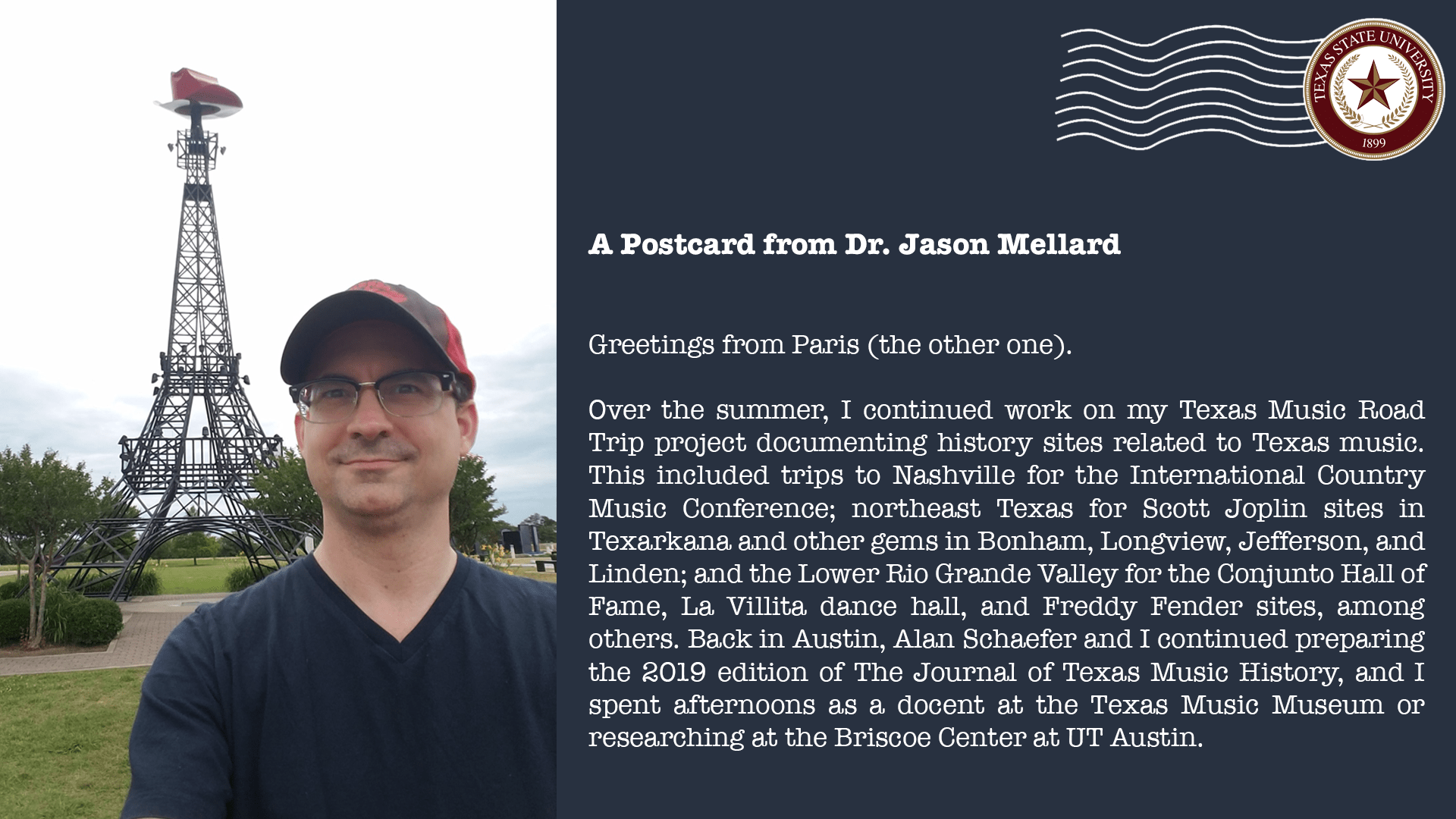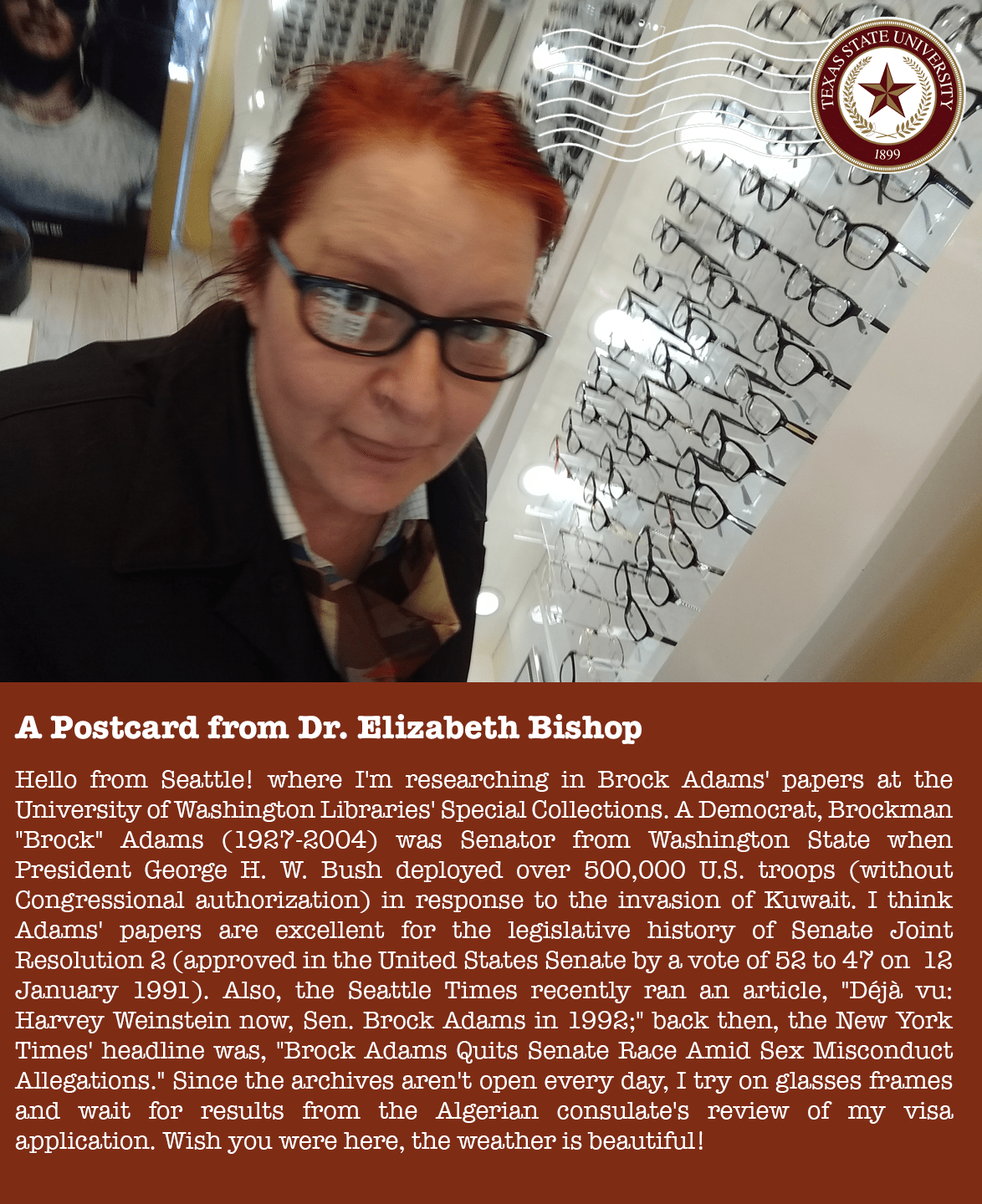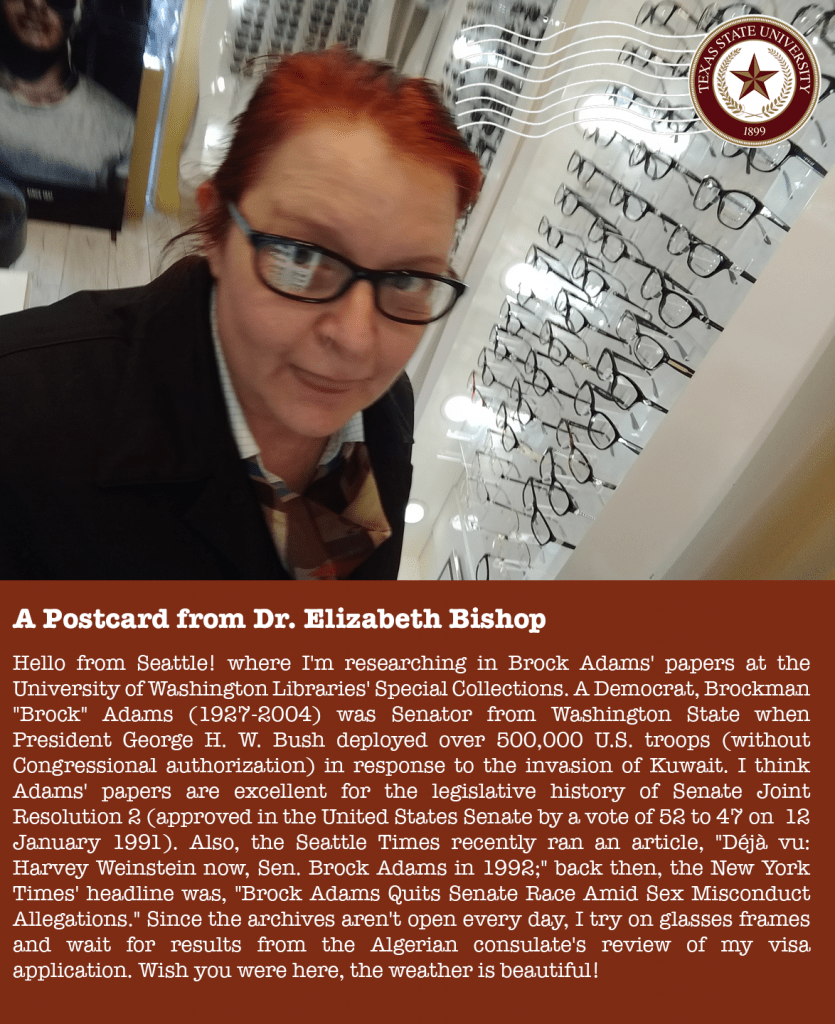
Category: History at Texas State
Now accepting applications

Texas State University’s Department of History is currently inviting applications for the following positions. Click below for details:
Assistant Professor in Russian and/or Soviet History since 1905
Assistant Professor in Public History and Oral History
Open Rank, Faculty of Practice in Public History and Local and Community History


